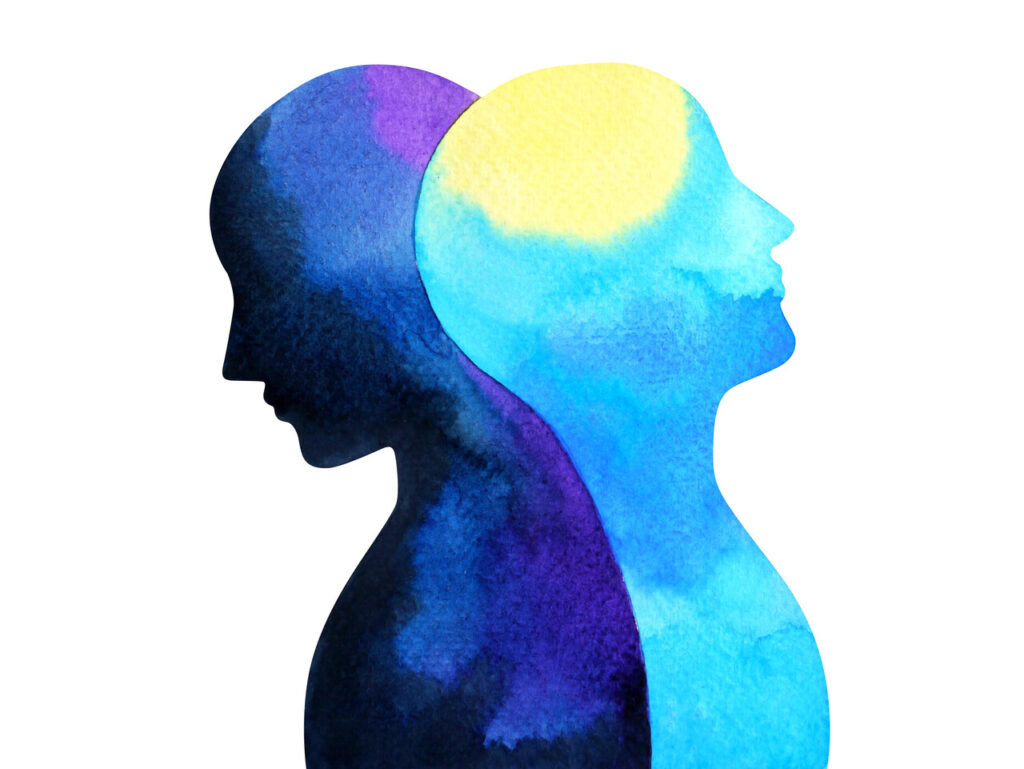Understanding Insomnia
Definition of Insomnia
Insomnia is a common sleep disorder characterized by difficulty falling asleep, staying asleep, or experiencing non-restorative sleep. It can be classified into two main types: acute and chronic. Acute insomnia is short-term and often triggered by situational stressors, whereas chronic insomnia occurs at least three times per week and persists for at least three months. Understanding these distinctions helps us tailor our psychotherapy for sleep disorders interventions effectively.
| Type | Duration | Frequency |
|---|---|---|
| Acute Insomnia | Short-term | Less than 3 months |
| Chronic Insomnia | Long-term | 3 times per week for 3 months or more |
Common Causes of Insomnia
Various factors can contribute to the onset of insomnia, ranging from lifestyle habits to psychological conditions. Identifying these causes is critical in developing a comprehensive treatment plan.
- Stress and Anxiety: Daily life pressures and anxiety disorders are among the leading causes.
- Depression: Often co-occurs with insomnia. For more information, refer to our psychotherapy for depression page.
- Lifestyle Factors: Irregular sleep schedules, caffeine, alcohol, and nicotine consumption.
- Medical Conditions: Chronic pain, asthma, and heart disease can disrupt sleep.
- Medications: Some prescription medications have side effects that include sleep disturbances.
Impact of Insomnia on Mental Health
The repercussions of insomnia extend beyond just sleep disruption; it has significant effects on mental health. Persistent insomnia can deteriorate cognitive function, emotional well-being, and overall quality of life.
- Cognitive Impairment: Difficulty concentrating, memory lapses, and decreased problem-solving abilities.
- Emotional Dysregulation: Increased irritability, mood swings, and exacerbation of anxiety and depression. Learn more on our psychotherapy for anxiety and psychotherapy for stress management pages.
- Physical Health Decline: Prolonged sleep deprivation can lead to a weakened immune system and heightened risk of chronic illnesses.
- Interpersonal Relationships: Insomnia can strain relationships due to irritability and emotional instability. Further insights are available on our psychotherapy for relationship issues page.
Addressing insomnia through targeted psychotherapy can significantly improve overall mental health, providing a holistic approach to well-being.
The Role of Psychotherapy
In addressing sleep disorders like insomnia, psychotherapy can play a crucial role. Understanding how psychotherapy can help and the different approaches available can provide valuable insights for individuals struggling with sleep issues.
How Psychotherapy Can Help with Sleep Disorders
Psychotherapy is a treatment method that involves talking with a trained mental health professional to understand and resolve mental health issues. When it comes to sleep disorders, psychotherapy helps individuals identify and change behaviors and thought patterns that contribute to sleep problems.
- Identifying Underlying Issues: One of the key ways psychotherapy aids in treating sleep disorders is by uncovering underlying issues such as stress, anxiety, or depression. For more information on how psychotherapy addresses anxiety, visit our page on psychotherapy for anxiety.
- Behavior Modification: By identifying maladaptive behaviors that disrupt sleep, therapists guide patients to develop healthier sleep habits.
- Cognitive Restructuring: Changing negative thought patterns about sleep can alleviate anxiety and stress associated with insomnia.
Types of Psychotherapy Approaches for Insomnia
There are several psychotherapeutic approaches utilized to manage and treat insomnia. Each approach has distinct techniques and methodologies aimed at improving sleep quality.
-
Cognitive Behavioral Therapy for Insomnia (CBT-I): This is considered the gold standard for treating insomnia. CBT-I involves identifying and changing thoughts and behaviors that interfere with sleep. Techniques may include stimulus control, sleep restriction, and cognitive restructuring. Refer to our section on Cognitive Behavioral Therapy for Insomnia (CBT-I) for more detailed information.
-
Mindfulness-Based Therapy: This approach incorporates mindfulness practices, such as meditation and breathing exercises, to reduce stress and promote relaxation, which can lead to better sleep. Visit our section on Mindfulness-Based Therapy for Insomnia to learn about specific mindfulness practices that can improve sleep.
-
Relaxation Techniques: These include progressive muscle relaxation, guided imagery, and breathing exercises aimed at reducing bodily tension and promoting a state of calm conducive to sleep.
-
Sleep Hygiene Education: This involves educating patients on practices that support good sleep, such as maintaining a regular sleep schedule, creating a restful sleeping environment, and avoiding stimulants before bedtime. For more details on sleep hygiene practices, see our section on Sleep Hygiene in Psychotherapy.
| Psychotherapeutic Approach | Target Techniques |
|---|---|
| Cognitive Behavioral Therapy for Insomnia (CBT-I) | Sleep restriction, stimulus control, cognitive restructuring |
| Mindfulness-Based Therapy | Meditation, breathing exercises |
| Relaxation Techniques | Progressive muscle relaxation, guided imagery |
| Sleep Hygiene Education | Maintaining sleep schedule, creating restful environment |
Exploring these psychotherapeutic approaches can provide individuals with effective strategies for managing and overcoming insomnia. Whether it’s through altering thought patterns, adopting mindfulness practices, or improving sleep hygiene, psychotherapy offers a comprehensive solution to sleep disorders. For more resources on dealing with various mental health issues through therapy, check out our articles on psychotherapy for stress management and psychotherapy for social anxiety.
Cognitive Behavioral Therapy for Insomnia (CBT-I)
Cognitive Behavioral Therapy for Insomnia, commonly known as CBT-I, is a structured program that helps individuals overcome chronic sleep issues. It has proven to be an effective form of psychotherapy for addressing sleep disorders by focusing on the interplay between thoughts, behaviors, and sleep patterns.
Overview of CBT-I
CBT-I is tailored specifically to treat insomnia and generally involves a series of stages to address the thoughts and behaviors that contribute to sleep problems. This form of therapy is highly personalized, typically consisting of 8-12 sessions depending on individual needs and progress.
| CBT-I Component | Description |
|---|---|
| Cognitive Therapy | Addresses negative thoughts and anxieties related to sleep |
| Behavioral Interventions | Modifies habits that hinder restful sleep |
| Educational Components | Provides information on sleep hygiene and sleep science |
| Relaxation Techniques | Reduces stress and promotes relaxation |
Techniques Used in CBT-I
Various techniques are employed in CBT-I to help patients achieve better sleep. Some of the primary methods include:
Cognitive Therapy
We work with patients to identify and change irrational or unhelpful thoughts about sleep. This involves challenging beliefs such as “I’ll never be able to sleep well” and replacing them with more positive, realistic thoughts. Cognitive therapy helps reduce the anxiety and worries that often accompany insomnia.
Stimulus Control
Stimulus control aims to break the negative association between the bed and sleeplessness. We guide patients to adopt habits such as going to bed only when sleepy, getting out of bed if unable to sleep within 20 minutes, and using the bed only for sleep and intimacy. This helps re-establish the bed as a place for rest.
Sleep Restriction
Sleep restriction limits the amount of time spent in bed to the actual amount of sleep obtained, thereby creating a mild sleep deficit. Gradually, the sleep window is increased as sleep efficiency improves. This approach helps consolidate sleep, making it more restful and effective.
Relaxation Techniques
Relaxation techniques such as progressive muscle relaxation, deep breathing exercises, and mindfulness meditation are integrated into therapy. These methods help reduce physical and mental tension, facilitating a smoother transition into sleep. For further details, visit our article on psychotherapy for stress management.
Sleep Hygiene
Good sleep hygiene practices are essential for enhancing the effectiveness of CBT-I. We educate patients on maintaining a consistent sleep schedule, creating a comfortable sleep environment, and avoiding stimulating activities before bedtime.
| Sleep Hygiene Practice | Description |
|---|---|
| Consistent Sleep Schedule | Go to bed and wake up at the same time every day |
| Comfortable Sleep Environment | Keep the bedroom cool, dark, and quiet |
| Pre-Bedtime Routines | Avoid caffeine and electronics, engage in relaxing activities |
By utilizing these techniques, CBT-I addresses both the mental and behavioral aspects of insomnia, offering a comprehensive approach to improving sleep. If you’re struggling with other psychological issues such as psychotherapy for anxiety or psychotherapy for depression, addressing these concerns in conjunction with sleep therapy can be especially beneficial.
Mindfulness-Based Therapy for Insomnia
Introduction to Mindfulness-Based Therapy
Mindfulness-Based Therapy (MBT) has emerged as an effective approach for addressing sleep disorders, including insomnia. This therapy integrates mindfulness principles to foster awareness and acceptance of present experiences. By helping individuals observe thoughts and sensations without judgment, it reduces the cognitive and emotional arousal that often disrupts sleep.
In our practice, we apply MBT to help clients manage insomnia by promoting a calm and focused mind. Mindfulness techniques enhance self-awareness and relaxation, which are crucial for improving sleep quality. This therapy can be particularly effective for those also dealing with psychotherapy for anxiety or psychotherapy for stress management, as these conditions often co-exist with insomnia.
Mindfulness Practices for Improving Sleep
Several mindfulness practices can be incorporated into psychotherapy for improving sleep. These techniques help clients establish a calming bedtime routine and develop healthier sleep patterns. Here, we outline some of the key practices used in Mindfulness-Based Therapy for insomnia:
Guided Mindfulness Meditation
Guided mindfulness meditation involves focusing on breathing and being present in the moment. This practice helps to quiet the mind and reduce the racing thoughts that can interfere with sleep. It encourages a shift in awareness from worrying about sleep to simply experiencing the present.
| Practice | Description | Duration (Minutes) |
|---|---|---|
| Body Scan | Focus on different body parts progressively | 20-45 |
| Breath Awareness | Focus on breathing patterns | 5-20 |
| Loving-Kindness Meditation | Cultivate compassion towards self and others | 15-30 |
Progressive Muscle Relaxation (PMR)
PMR involves tensing and then relaxing different muscle groups in a systematic manner. This technique reduces physical tension and prompts relaxation, preparing the body for sleep.
| Muscle Group | Tensing Duration (Seconds) | Relaxing Duration (Seconds) |
|---|---|---|
| Forehead | 5 | 10 |
| Shoulders | 5 | 10 |
| Lower Back | 5 | 10 |
For comprehensive benefits, PMR should be practiced regularly as part of a bedtime routine.
Mindful Breathing
Mindful breathing exercises promote relaxation by focusing attention on the breath. Techniques such as 4-7-8 breathing (inhaling for 4 seconds, holding for 7 seconds, and exhaling for 8 seconds) calm the nervous system and help ease into sleep.
| Technique | Inhale Duration (Seconds) | Hold Duration (Seconds) | Exhale Duration (Seconds) |
|---|---|---|---|
| 4-7-8 Breathing | 4 | 7 | 8 |
| Box Breathing | 4 | 4 | 4 |
| Alternate Nostril Breathing | 4 | 4 | 4 |
Our approach to mindfulness-based therapy for insomnia is tailored to each client’s needs, ensuring that the techniques align with their lifestyle and preferences. By integrating mindfulness practices into psychotherapy for sleep disorders, we aim to provide comprehensive support that addresses not only sleep issues but also their underlying causes. For more information on how mindfulness-based therapy can aid other conditions, please explore our articles on psychotherapy for depression and psychotherapy for trauma.
Sleep Hygiene in Psychotherapy
Importance of Sleep Hygiene
In the realm of psychotherapy for sleep disorders, sleep hygiene plays a crucial role. Sleep hygiene refers to a set of practices that individuals can follow to ensure they get a good night’s rest. Poor sleep hygiene can exacerbate insomnia and other sleep disorders. Effective sleep hygiene practices can help to realign sleep patterns, reduce anxiety around bedtime, and promote a healthier sleep environment.
Proper sleep hygiene addresses various factors such as lifestyle habits, environmental elements, and pre-sleep routines. It’s essential to understand that improving sleep hygiene can significantly enhance the effectiveness of psychotherapy. For instance, incorporating regular sleep hygiene practices can complement cognitive behavioral therapy for insomnia (CBT-I) and mindfulness-based approaches.
Incorporating Sleep Hygiene Practices in Psychotherapy
We make it a point to integrate sleep hygiene practices into our therapeutic sessions. By addressing these practices, we can support our clients in making the necessary changes to improve their sleep. Here are some key elements we focus on:
- Consistency in Sleep Schedule: Maintaining a regular sleep schedule by going to bed and waking up at the same time every day.
- Creating a Sleep-Conducive Environment: Ensuring that the bedroom is dark, quiet, and cool.
- Limiting Exposure to Screens: Reducing screen time at least an hour before bed to avoid blue light interference.
- Caffeine and Alcohol Intake: Advising clients on the impacts of caffeine and alcohol on sleep quality.
- Physical Activity: Encouraging regular exercise but not too close to bedtime.
- Relaxation Techniques: Incorporating relaxation exercises such as deep breathing, progressive muscle relaxation, and guided imagery.
| Sleep Hygiene Practice | Recommended Action |
|---|---|
| Consistency in Sleep Schedule | Fixed bedtime and wake-up time |
| Sleep Environment | Dark, quiet, and cool bedroom |
| Screen Time | Limit one hour before bed |
| Caffeine and Alcohol Intake | Reduce intake, especially in the evening |
| Physical Activity | Regular exercise, not close to bedtime |
| Relaxation Techniques | Deep breathing, muscle relaxation, guided imagery |
These practices are discussed and reinforced during sessions. We also provide resources and handouts for clients to refer to between appointments.
Our personalized treatment plans and holistic psychotherapy for sleep disorders ensure that sleep hygiene is a cornerstone of our therapeutic approach. By monitoring progress and adjusting strategies, we can help clients develop sustainable habits that promote better sleep and overall well-being. For more on our comprehensive approach, you can read about psychotherapy for anxiety and psychotherapy for depression.
Our Approach to Psychotherapy for Sleep
Personalized Treatment Plans
In our psychotherapy approach for addressing sleep disorders, we prioritize crafting personalized treatment plans that cater to the unique needs of each individual. A one-size-fits-all strategy rarely suffices, especially when dealing with the complexities of sleep disorders. We begin by conducting a thorough assessment of the individual’s sleep patterns, lifestyle, and mental health history. This allows us to identify specific factors contributing to their insomnia.
Through this comprehensive evaluation, we can develop a customized therapy plan incorporating a variety of techniques. Cognitive Behavioral Therapy for Insomnia (CBT-I) and Mindfulness-Based Therapy are frequently incorporated, as they have shown significant effectiveness in improving sleep quality. Additionally, we emphasize the importance of sleep hygiene and work closely with clients to establish healthy sleep habits.
Monitoring Progress and Adjusting Strategies
Continuous monitoring of progress is a cornerstone of our approach to psychotherapy for sleep disorders. By regularly tracking sleep patterns and gathering feedback from clients, we can determine the effectiveness of the implemented strategies. This allows us to make informed adjustments to the treatment plan as needed.
We utilize various tools and techniques to monitor progress, including sleep diaries, questionnaires, and direct feedback from clients. Below is a sample table illustrating common metrics we might track:
| Metric | Baseline | Week 1 | Week 2 | Week 3 | Week 4 |
|---|---|---|---|---|---|
| Average Sleep Duration (hours) | 5 | 5.5 | 6 | 6.5 | 7 |
| Sleep Onset Latency (minutes) | 45 | 40 | 35 | 30 | 25 |
| Nighttime Awakenings | 3 | 2 | 2 | 1 | 1 |
| Sleep Quality (1-10) | 4 | 5 | 6 | 7 | 8 |
Based on the data collected, we hold regular sessions to review progress and discuss any challenges the client may be facing. This collaborative approach ensures that the treatment plan evolves to meet the client’s needs effectively.
For those seeking specialized assistance, we offer additional resources on various aspects of psychotherapy, including psychotherapy for anxiety, psychotherapy for depression, and psychotherapy for trauma. Our goal is to provide comprehensive support that addresses the root causes of insomnia, leading to long-term improvements in sleep quality and overall well-being.














